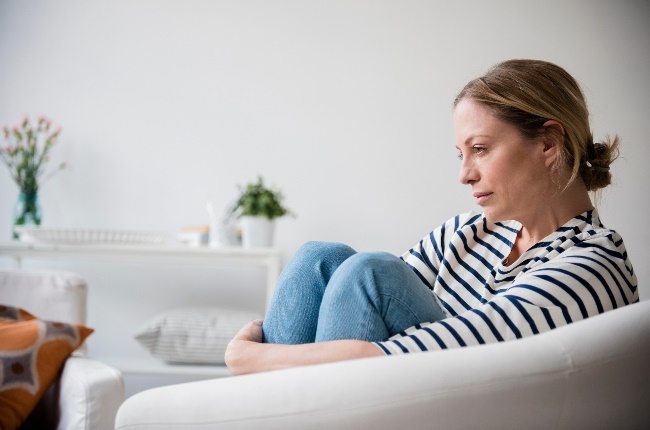
No matter who you are or where you come from – life in lockdown is certainly no walk in the park.
No doubt the extended period indoors will have had long-reaching consequences on how you’re feeling about yourself, your loved ones and your work.
Experts unpack what you should keep in mind to help cope.
Change your mindset
One thing lockdown did was to allow us to refocus our attention from the external to the internal, says California based psychologist Aarti Gupta. “Approaching this time with a mindset of feeling trapped or stuck will only stress you out more. This is your chance to slow down and focus on yourself,” Gupta says.
There are many mental challenges to face, including anxiety, boredom, depression and increased interpersonal conflict, says Lauren Moss, a counselling psychologist from Sandton. “It seems that most people have been going through a similar emotional roller coaster during the time leading up to lockdown as well as in lockdown.”
Putting practical measures in place can help ease the emotional pressure.
The work-parenting balance
Working parents the world over have found balancing work and full-day parenting to be a nearly impossible challenge to overcome.
It helps if parents can take things in shifts. UK based marriage counsellor Deborah Parker suggests working parents take turns to spend time with kids and allocate a time at the end of the day for a discussion about how things are going, out of the ear-shot of the kids.
“Your number one job as a parent at the moment is to keep your children well and that means looking after their mental health as well as their physical health,” says Nerys Hughes, clinical director of Whole Child Therapy in the UK.
Give them a sense of purpose. “We need roles, identity and productivity, even from the age of three,” Hughes says.
Do this by getting them involved in day to day tasks, especially ones that can help to keep them learning and stimulated. “It can be learning to make mom a cup of tea, putting pasta in a bowl or drawing a picture for someone so they feel connected to the people they are missing,” suggests Hughes.
Keep the love alive!
At least two Chinese cities have reported a record high number of divorce requests, post quarantine. There’s even a popular Twitter hashtag – #covidivorce.
“The frustration of lockdown and its challenges is hard enough on individual basis – when you couple that with having to deal with a spouse or child’s pent-up frustration, the level of irritability raises exponentially,” says Garth Newman, clinical psychologist in private practice based in Cape Town
“You’re spending more time with your partner than you normally would and while this is potentially an opportunity to deepen connections with your loved ones, it also means having prolonged exposure to parts of your family members’ personalities you could previously escape from – like your child’s need for her questions to be answered immediately, or your partner’s ability to not see the dirty coffee cups strewn all over the house,” Newman adds.
Solutions
• “Be honest with each other about needing a little space, and have a conversation about expectation and strategy for the next week or so. Discuss what each one of you needs, what your coping mechanisms are and how you can support each other – but make sure you also have the time and space to take care of yourself,” suggests London based couples therapist Dr Kalanit Ben-Ari.
• Ben-Ari also suggests avoiding criticism (framing complaints in the context of a defect in your partner), contempt (name calling, eye rolling, sneering, mockery, and hostile humour), defensiveness (making excuses to explain away your actions) and stonewalling (withdrawing from a conversation, even if physically present) to keep your relationship strong.
• Cool it! Postpone heated arguments for at least half an hour but not for longer than 24 hours. One of you calls a time-out and suggests when the matter can be spoken about away from children and more calmly than the aggressive state you’re currently in.
• Cut each other some slack. “When we’re feeling stressed, it’s easy to turn little things into big things and see malicious intent where there was none,” says Amie Gordon, a social-personality psychologist at the University of California. “Create a rule that everyone will give each other the benefit of the doubt and assume the best, rather than the worst. Gordon adds that couples in less happy relationships tend to assume bad behavior is just who the partner is instead of looking at the bad situation.
• Schedule time together and time apart. “Have a frank conversation about what you want to do together, such as binge watch a TV show, or maybe even work on a puzzle. Then also talk about what you want to do alone,” suggests Moss. “Also talk about alternating days where each partner can be in charge of the routine of the day. Imagine one day you are on housework duty and take care of everything and the next day you get to relax and know that your partner is on duty.”




 Publications
Publications
 Partners
Partners
















